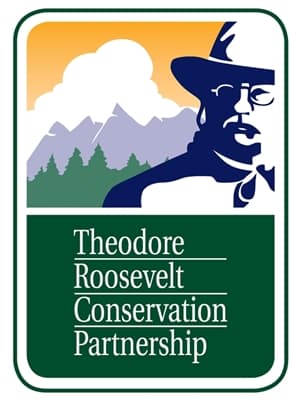New USDA Conservation Program a Boon for Sportsmen, Private Landowners

USDA Regional Conservation Partnership Program streamlines existing programs, facilitates multi-stakeholder conservation projects
Today’s launch by the U.S. Department of Agriculture of a five-year, $1.2 billion federal conservation program, the Regional Conservation Partnership Program, will advance competitive regional conservation projects designed by local partners and combine existing conservation programs into a single, streamlined approach, the Theodore Roosevelt Conservation Partnership announced today.
Secretary Vilsack announced implementation of the RCPP this afternoon in Bay City, Michigan, with Senate Agriculture Committee Chair Debbie Stabenow. Sen. Stabenow took a leadership role in developing and securing passage of the 2014 Farm Bill, which authorized the USDA’s creation of the new program.
“One of the outstanding fruits of the 2014 Farm Bill is being harvested today,” said TRCP President and CEO Whit Fosburgh. “The RCPP program, combined with the Conservation Reserve Program, will produce huge benefits throughout the agricultural landscape. It is a chance for sportsmen to step up and engage effectively in the new Farm Bill – and in conservation efforts that will directly benefit important fish and wildlife habitat.”
The RCPP combines four existing conservation programs (the Agricultural Water Enhancement Program, Cooperative Conservation Partnership Initiative, Chesapeake Bay Watershed Initiative and Great Lakes Basin Program for Soil Erosion). Projects that improve soil health, water quality, water use efficiency and wildlife habitat, as well as activities that otherwise bolster natural resources on private lands, are potential beneficiaries of RCPP monies. Groups eligible for funding include private companies, universities, nonprofit organizations and local and tribal governments.
Also today Secretary Vilsack announced the eight critical conservation areas where much of the funding will be focused: the Chesapeake Bay Watershed, Mississippi River Basin, Great Lakes Region, California Bay Delta, Prairie Grasslands, Colorado River Basin, Columbia River Basin, and Longleaf Pine Range. USDA intends for RCPP monies to be doubled to $2.4 billion with matching contributions from partners.
The TRCP and its partners commended the new approach.
“The Regional Conservation Partnership Program will allow us to target priority species, including pheasants and quail, for sportsmen and sportswomen while simultaneously improving soil health and water quality,” said Dave Nomsen, vice president of governmental affairs, Pheasants Forever and Quail Forever.
“The National Wild Turkey Federation is excited about the innovative and creative regional partnerships that will achieve conservation work across landscapes under the RCPP,” said Becky Humphries, executive vice president of conservation for the National Wild Turkey Federation.
“Significant opportunities exist for sportsmen’s organizations who participate actively in the RCPP to benefit hunting and fishing throughout the country,” said TRCP Senior Director of Science and Policy Tom Franklin. “We intend to engage our supporters in using this innovative program to facilitate on-the-ground habitat projects and propel sportsmen-fueled economic growth.”
In 2014, $400 million in USDA funds is available. Learn more about the RCPP, including how to apply for funding.

